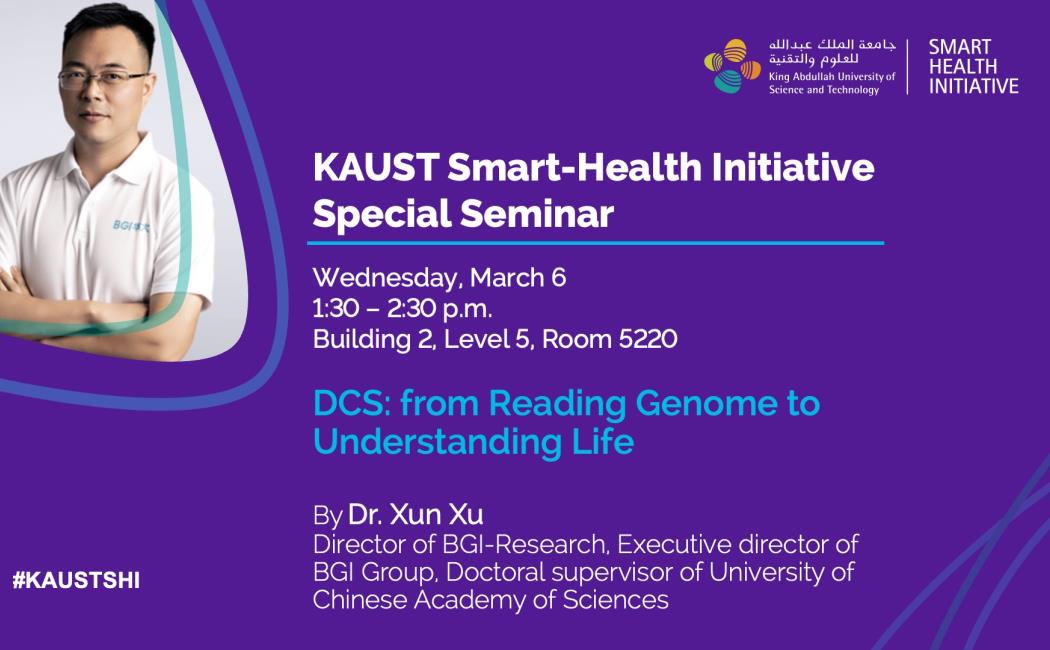
KSHI Special Seminar: DCS: from Reading Genome to Understanding Life
Abstract
The Central Dogma, initially proposed by Francis Crick in 1958, delineates the essential flow of genetic information within living organisms. It succinctly states that DNA directs RNA, which in turn guides protein synthesis. Consequently, understanding the genome is pivotal for comprehending life itself. DNA Sequencing (D) has emerged as a critical tool in unraveling the mysteries of life. Leveraging cutting-edge platforms like DNB-based high-throughput sequencing, we have amassed vast genomic data. These technological breakthroughs have illuminated various aspects of biology. However, even armed with genomic information, we grapple with a fundamental question: How does the same genomic blueprint yield diverse cell types? With Single-cell sequencing technology (C), sequencing individual cells, we’ve gained insights into how the same set of genome orchestrates the intricate dance of cellular forms and functions. Recent breakthroughs in spatial transcripts (S), particularly techniques like Stereo-seq, to study single cells transcriptome as well as other omics across time and space dimensions. These approaches seek to address critical questions about genome regulation, its impact on cellular diversity, and how these processes influence life phenomena, including aging and disease. The talk will introduce our recent progress of these DCS technologies and application in different biology research projects.
Bio
Xu Xun, PhD, Director of BGI-Research, Executive director of BGI Group, Doctoral supervisor of University of Chinese Academy of Sciences. Dr. Xu is appointed as WG convenor of International Organization for Standardization/Biotechnology Committee (ISO/TC276), and on the National Committee for Standardization of Biological Specimens. In addition, he is also elected as Director-at-Large–China of International Society for Biological and Environmental Repositories (ISBER).
His research focuses on the sequencing technologies, single-cell sequencing, stereo-seq technologies and applications of sequencing technologies in precision medicine and biodiversity. Dr. Xu has authored or co-authored 300+ scientific papers published in top international peer-reviewed journals including Nature, Science, and Cell. The number of citations using his published papers in the past five years has reached more than 50,000 times. He’s also Selected as a "Highly Cited Scientist" by Clarivate Analytics for eight consecutive years.
Dr. Xu has either led or participated in several major national scientific research projects and several international projects, including the National 863 Sequencer Project, the National Key R&D Program, and the National Development and Reform Commission's Industrial Agglomeration Project. He has been awards with many honors, such as “Grand Challenges-Young Scientist” by MOST and Bill & Melinda Gates Foundation, “Guangdong Science and Technology Award”, “Natural Science Award of MOE”.
